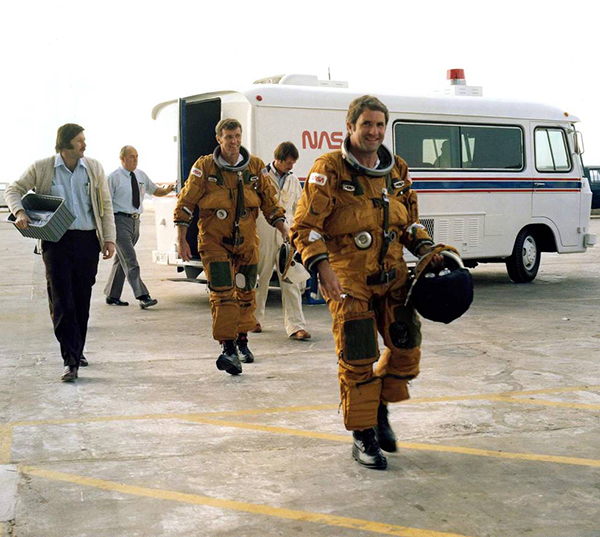Astronauts and Other Professionals Creating NFT Collections for Fans
By Space Coast Daily // July 15, 2022

For those reading this who do not already know, non-fungible tokens (NFTs) are big business. In essence, they are digital signatures, seen as certificates of authenticity in which original digital data (usually data of some considerable notoriety and fame), is stored in a unique blockchain, making it fundamentally different to a simple copy of that data.
This is akin to a famous celebrity signing an item that they have interacted with, to then be sold at a potentially enormous price. However, there is one avenue the narrative on NFTs can go down that is quite literally out of this world.
NFTs In Space!
Astronauts live in an ocean of data, most of which is recorded for a combination of reasons involving scientific research and post hoc procedural analyses. During the Apollo program, for example, all communications between the command and Luna modules and NASA HQ in Houston were recorded and transcribed.
As a result, famous lines, such as Neil Armstrong’s “one small step for man…”, speech upon descending from the Luna module of Apollo 11 onto the Moon’s surface, or Jim Lovell’s famous report to NASA during Apollo 13, “Houston, we’ve had a problem…”, when a routine stir of the oxygen tanks caused an explosion in the command module and a subsequent breach of their air supply.
Unfortunately for space enthusiasts looking to buy NFTs, the original recordings of these moments in history were non-digital, being made in the late 60s early 70s, although the physical tapes they were recorded on at NASA would no doubt be worth hundreds of millions today. However, the technological communication landscape on space exploration in the 21st century is changing.
Interplanetary Charity
Scott Kelly is a retired United States astronaut with a developing curiosity in the NFT blockchain technology. Kelly recently released an NFT collection entitled Dreams Out of This World, containing over three thousand digital signatures in blockchain, collecting roughly $500,000 in sales. Unlike most NFT sales, however, Kelly claimed 0% of the profits, donating all of it to charity in the form of a non-profit Global Empowerment Mission (GEM) to help fund humanitarian aid in Ukraine.
“I feel grateful to be launching a project at a time that allows me to support them in a way I may have not been able to do on my own,” said Kelly. What is perhaps most exciting about this is that it creates a new precedent for space exploration, marked by the potential to crowdfund humanitarian and philanthropic endeavors which nations and governments have not the heart or the budget to pay for on taxpayer’s money.
FINA
NASA is not the only organization that recognizes the potential of NFTs in the context of immortal moments in history. The same can be said of world record breaking in the context of professional sport. The Fédération Internationale de Natation (FINA), for example, recently announced that it would, alongside prize funds, be awarding world record breakers with NFTs in the World Aquatics Championships in Budapest.
One can only imagine the potential value of an original digital recording of a world record being broken, immortalizing the exact moment sporting history was made.












